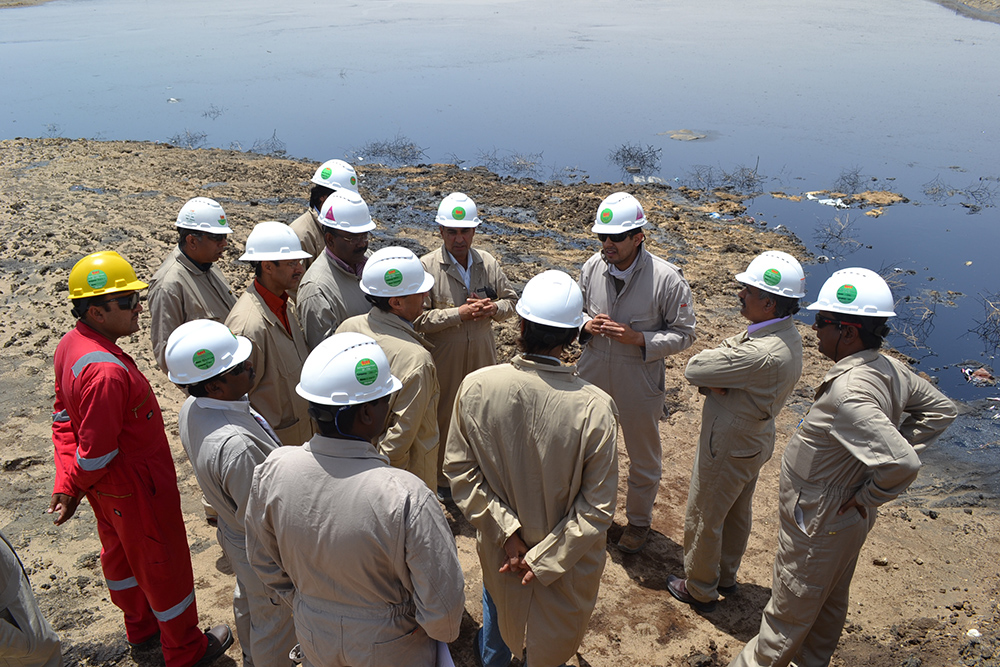
In today’s dynamic world where innovation drives progress, research holds the key to unlocking breakthrough solutions to the world’s most pressing challenges. Yet, too often, these breakthrough discoveries remain within the confines of the laboratory and do not reach those who need them most – the end users. Bridging this gap requires a concerted effort, and entrepreneurship has emerged as a powerful catalyst in this effort and a path towards sustainable progress. Entrepreneurship serves as a vital link between the abstract realm of research and the concrete needs of society.
Oil Spill and Oil Contaminated Waste Management
Oil spills are a global problem that endanger ecosystems, plants, and wildlife. In 2023, there were 10 oil tanker spills worldwide, spilling more than 700 tons of oil. Each year, the National Oceanic and Atmospheric Administration (NOAA) responds to more than 150 oil and chemical spills in U.S. waterways. Oil spills into rivers, bays, and oceans are typically caused by accidents involving tankers, barges, pipelines, refineries, drilling rigs, and storage facilities.
Despite the best efforts of the oil industry and consumers, oil spills are on the rise across the country. Oil spills occur frequently on farmland due to the proximity of oil fields. These accidents often result in significant economic losses to farmers over multiple crop seasons. Similarly, people who depend on fishing lose their jobs due to oil slicks on rivers and lakes. To compensate for these losses, oil companies typically make large annual payments. But these are short-term solutions. Sustainable solutions, such as treating oil-affected land and water to make them usable, are essential for a long-term solution.
Research is a potential solution and its impact
In 1992, immediately after the Gulf War, the Department of Biotechnology, Government of India, initiated a program on petroleum biotechnology. Research institutes such as The Energy and Resources Institute (TERI) with the support of the Department of Biotechnology, Government of India, took the lead in finding solutions to this challenge.
After screening over 1000 naturally occurring bacterial strains, four strains were selected. Each strain is specialized in degrading a particular oil, and there is no competition between the strains. Together, these bacteria can degrade over 95% of the various oil fractions within 24 hours. After extensive research, “Oryzapper” was discovered, a cocktail of four bacterial strains to treat crude oil and oily sludge, which is an environmentally friendly and economical option. This innovative product can biodegrade crude oil and oily sludge at a very fast rate under laboratory conditions.
Bridging the gap between research and end users
One of the main challenges researchers face at this stage is translating theoretical knowledge into real-world applications. Academic institutions excel at generating knowledge, but implementing this knowledge in practice often requires an entirely different skill set and mindset. Researchers too often work in silos, disconnected from practical realities and end-user needs. Conversely, end-users can remain unaware of the latest research advancements that could address their challenges.
Moreover, research institutes have limited resources to fund such research activities or scale it up to the industrial level. With a focus on R&D, raising funds and applying for grants takes a back seat. This is where entrepreneurship comes into play. A more sustainable approach to R&D activities is collaboration, where technology is transferred to industry players and solutions are scaled up and applied to real-world situations.
Establishing a startup to facilitate smooth R&D operations and address financial challenges
Startup India has been on an incredible journey ever since the Prime Minister announced the Startup India initiative on January 16, 2016. The government’s objective with this program is to enable businesses to scale up through innovation and entrepreneurship in the country, thereby boosting economic growth and creating jobs on a large scale. The entity set up by TERI and ONGC follows a model similar to the Startup India initiative of 2016. Revenues have not only been generated but have also been reinvested in uninterrupted research and development activities. Moreover, a large number of jobs have been created for scientists, field workers, labourers and contractors. It is a win-win situation for the oil companies as well as the research institutes.
The product has been used by major oil companies across the globe including ONGC, IOCL, BPCL, HPCL and international agencies like ADNOC and KOC to successfully bioremediate oil contaminated sites. The technology operated by this innovative start-up efficiently treated over one million tonnes of oily sludge and soil. The rapid response to the oil spill resulted in the return of contaminated land to farmers while simultaneously cleaning up water bodies, benefiting the fishing industry as well. This is a great example of applying science to social welfare, ecological balance and restoration of livelihoods, especially in India and abroad.
This is an excellent example of the self-sustaining model of a start-up, reinvesting funds into the development of R&D activities while at the same time creating job opportunities. In this way, entrepreneurship acts as a powerful bridge between research and end users, translating scientific discoveries into concrete solutions that address real-world challenges.

